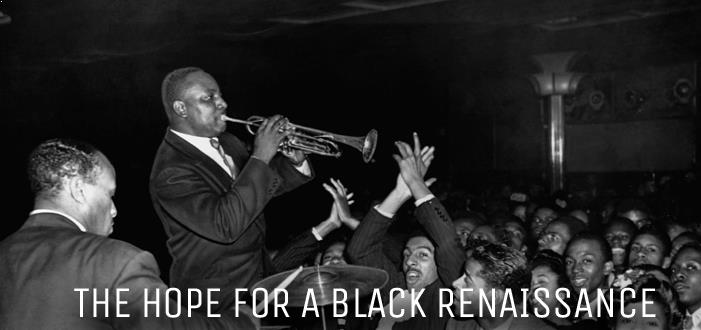
The Hope for a Black Renaissance
The most startling thing about the emergence of 12 Years a Slave is its undeniable dominant casting performance. In particular, the flawless drama created by its black actors. In an almost humiliating manner, these actors flawlessly displayed the blemishes of Hollywood and Tinsel Town’s incapability to cast black talent. Sweepingly, this drama proved the talent is there, in overflowing abundance.
What holds back the waters until the dam breaks as it did with Slave? Is it simply a dearth of dramatic roles for blacks, aside from magic negroes, fat-suited comedians, and muscled tank toppers that make things go boom? It is not to say the Hollywood machine lacks the capability of finding stories that are enriching and fulfilling for black leads, it’s that they’re simply afraid of them.
Afraid of blacks am I to say? Well, that too. The randomly selected studio executive has more in common with a vanilla – no pun intended – country club card carrier with a well-to-do mortgage and a well-to-do car payment that transports him to the place that affords his conspicuous consumption and relative peace with the world, with comforting knowledge that he has more than others do. This type of persona that green lights commercial productions of art seeks the familiar path towards profit. Their raison de’tre is not toward creating new meaning in the world – though they may tell each other that, blind to the sardonicism – but toward maintaining their toy edge. Ambition is a word they know to an extent; toward serving a standard of lifestyle with weekend getaways to Pebble Beach versus approving groundbreaking drama that becomes culturally iconic and therefore transcendental to the human condition.
When even the well-worn path fails – such as with the epic disaster of The Lone Ranger losing almost $200 Million – there is only a shrug. “It is bound to happen,” is the explanation given by the studio exec to a pair of Hollywood reporters providing us access in exchange for being down on their knees, filling their mouths, and eagerly bobbing their heads back and forth during the entire interview. The magic of movies now is in manufacturing content that excites the hedonic triggers of 13 year old boys. If it fails, it’s just too bad.
Aside from digressing on the point that in any other business, a $200 million losing decision would be immediate grounds for termination, what is more provocative is the complete obliviousness towards the fulfillment of that budget in more sophisticated roles. And yes, that includes using black actors. Has Will Smith not proven with his box-office mojo that audiences are not afraid of the big bad black man? Has not Tyler Perry screamed on the top of his money piles the commercial opportunity for telling stories that have black people centrally involved? Did not Steve Harvey prove once more the high returns on relatively low budget film casted around the African American? Hell, what about Oprah?
The resistance to fulfilling not only the obvious market opportunity but also artistic necessity was already alluded to: fear. No, the Porsche – and now Tesla – drivers controlling the purse strings are not racist. They are just unrelated to any of the drama that features people from Africa. Transformers 3D they can understand. Robots. Explosions. Megan Fox. Those are the symbols for a jackpot in the slot machine. A movie like Precious, however, and the turmoil of living in the urban welfare state, is like telling a story about Martians. Except at least aliens are cool to teenage boys and there’s a merchandising opportunity with Walmart on the line.
The silver lining that can be spun around this embarrassing showcase of the ignorance of culture makers in film is the approaching decentralizing of its production. Digital technology and the ever-accelerating improvements in the human coordination of labor markets are dramatically lowering the barriers toward audacious filmmakers to make, profit be damned, their art. And that includes black people and their stories. The day is approaching where we will no longer have to be tyrannized by another Holocaust movie nomination at the academy awards – Schindler’s List should have closed the book on that anyway. The further established content distribution methods and the normalcy of seeing movies online are creating this hope: that the black man will have his renaissance. True, the foreseeable work will be laden with the typical racial tensions involved. And no doubt will we see the “Mother Teresa” white characters, expressing their guilt by being some kind of mentor or interracial lover. Blacks are allowed to make predictable crap for a critic like me to piss on. But at least I will have the luxury to take aim.

